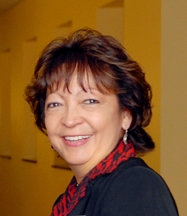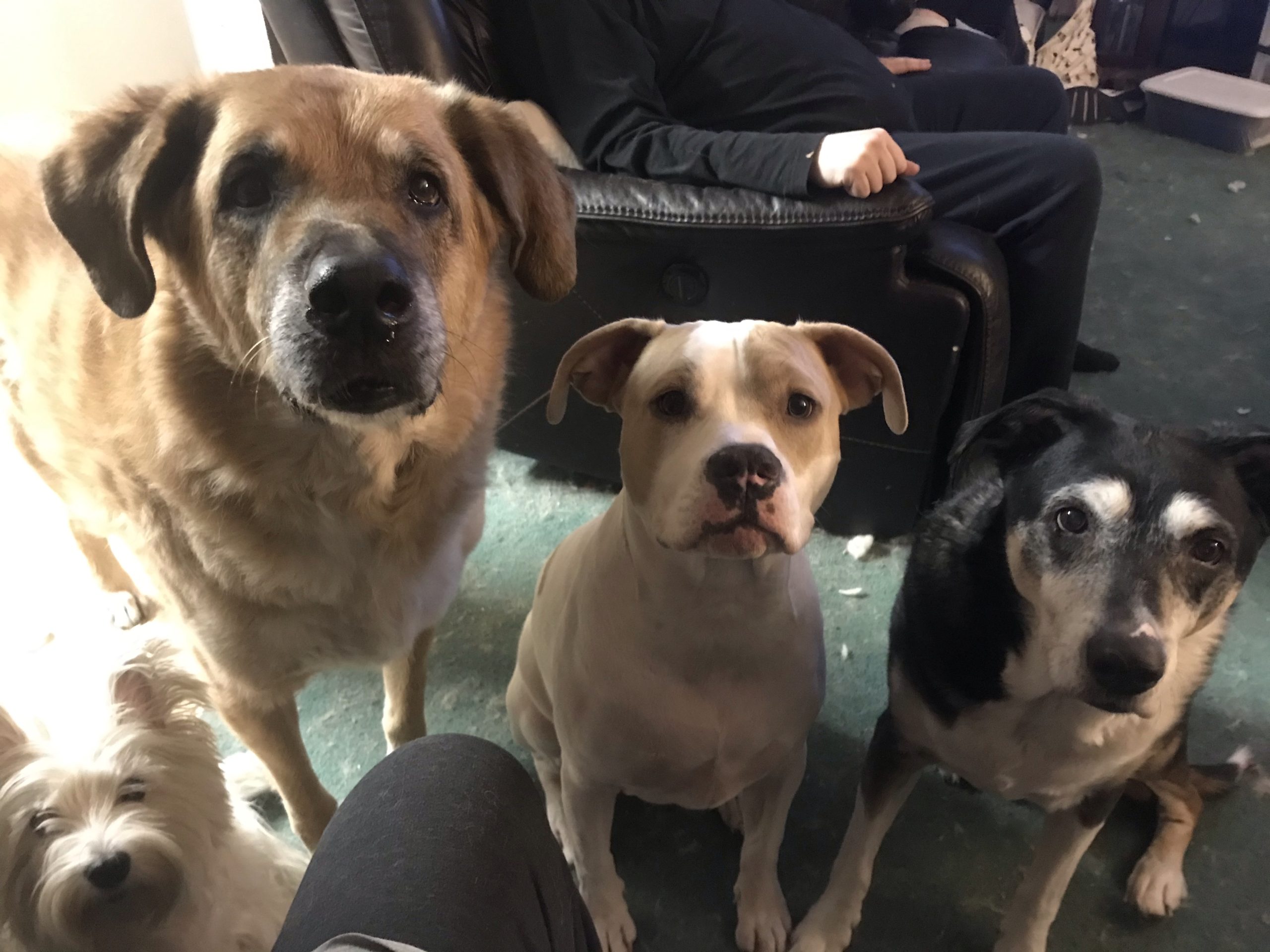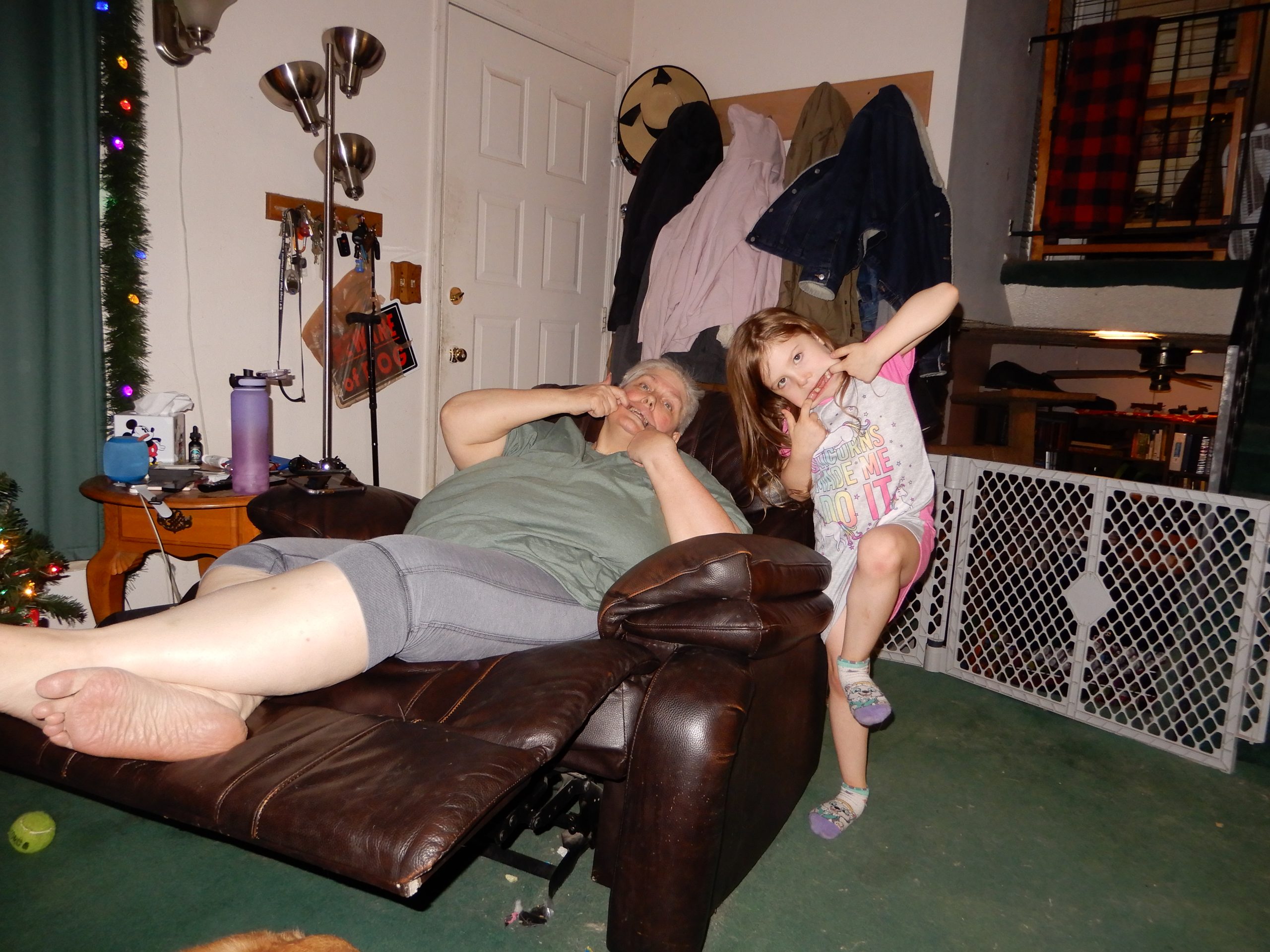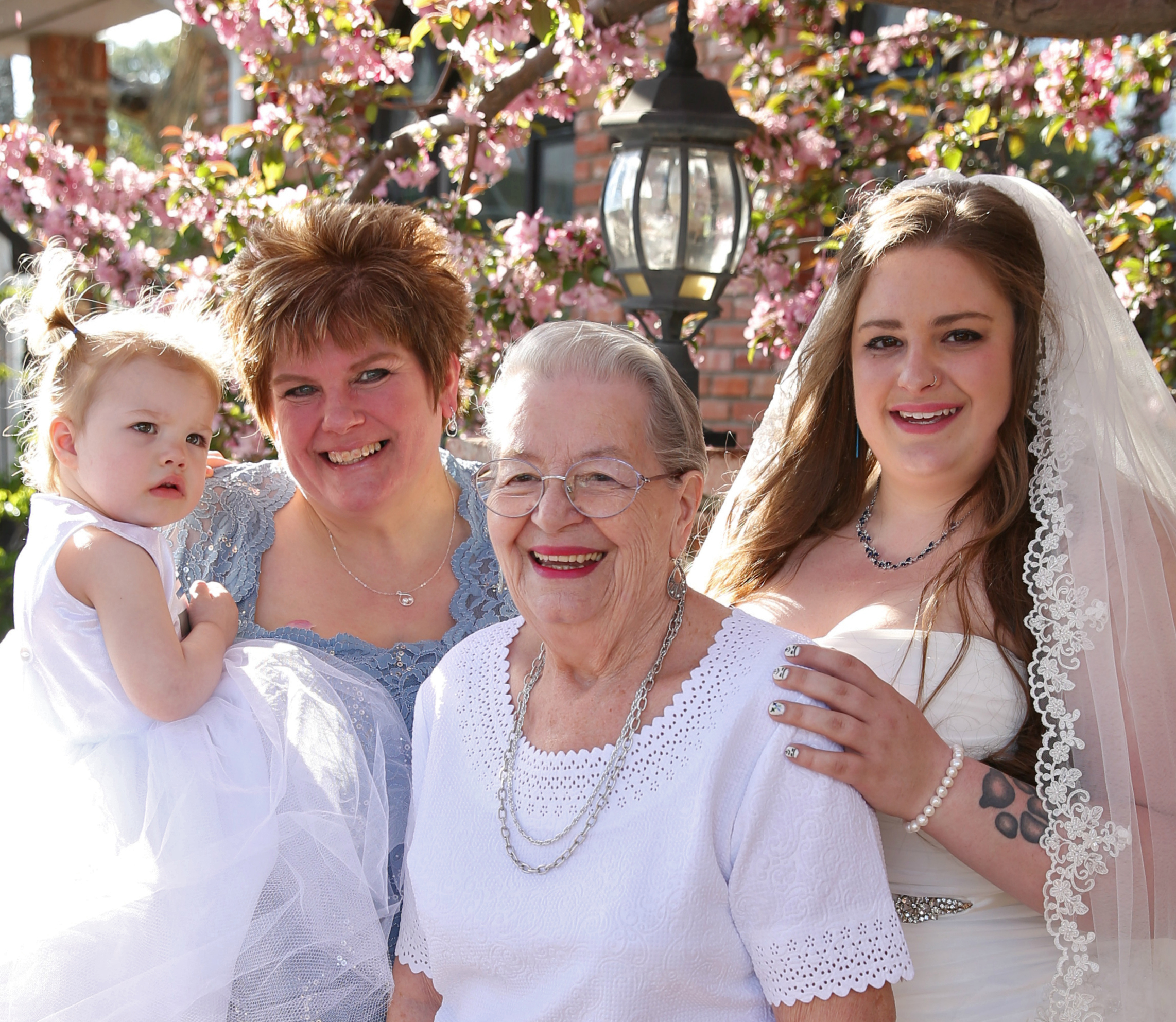Great Speech
This speech was incredibly moving to me when I first read it while posting it at the CU Alumni Association’s website. I was doing a year-end review of content and felt moved again to read it through… and was just as impressed as the first time. I encourage you to read the entire piece, it’s an amazing speech, I’m going to have to find the video of it – certainly it’s amazing.
I’ve met judge Arguello a couple of times now and she was very sweet, taking note that I had posted her speech, saying she’d had trouble finding it online – so I hope having it here makes it even easier to find.
Thank you for being ambitious Christine and giving your life to the people to make the law live and breathe. We are honored by your service.
-mdw
Remarks by Christine M. Arguello (Edu’77)
 Investiture for United States District Judge for the District of Colorado
Investiture for United States District Judge for the District of Colorado
December 5, 2008
Ladies and gentlemen, cherished family and friends, esteemed colleagues and honored guests:
First let me thank the Colorado Hispanic Bar Association and all my dear friends at the CHBA for this beautiful robe – I can think of no better symbol of your friendship and respect than this gift, which I shall cherish.
Words cannot express the emotions I am feeling today as I consider the responsibility that has been entrusted to me by this appointment. Perhaps this is because in my heart, today is really yesterday – a day more than 40 years ago when, as a 13-year-old, I picked up a magazine in the library and found myself entranced by the world of the law, and with the prospect that I could become a lawyer – an advocate for those who could not advocate for themselves.
In the decades that have followed that day, I am privileged to have been such an advocate, as well as a teacher, and now, today, a guardian of the law. In each of these roles, I hope I have been steadfast in my responsibilities as a citizen, and it is with respect for my fellow citizens that I wish today to share, with them, and with you, a little bit of who I am, and what I will bring to the role of United States District Judge for the District of Colorado.
I think the people deserve to know who presides over their courts and what we bring to that enormous responsibility. I bring a number of big dreams realized. Even as a barber’s daughter in Buena Vista, Colorado, I dreamed big. Maybe it was the altitude, or maybe it was my attitude. Either way, I was fortunate not only to have such dreams, but to be encouraged to pursue them by my father, and my mother, my wonderful husband Ron, and by many other key mentors and friends who saw my potential and reached out to grab my hands and help pull me up that steep incline of life.
But first, back to my “Eureka” moment when the “lawyer” light bulb went on for me. As a child, I was an avid reader. I discovered that marvelous entity known as the public library during the summer after my 4th grade year. And believe me, I was a frequent visitor to that little library in Buena Vista – trekking the two miles from my home on the outskirts of Buena Vista to the library at least 3 times a week during the summer – because I was only allowed to check out 3 books at a time. You can ask my dear sister Elaine and she will tell you that, much to her chagrin, I was the type of kid who would rather spend time reading than doing anything else, and that included playing with her. Because in my family only the “girls” did the housework and cooking and I was the oldest girl so most of the responsibility of helping my mom fell on my shoulders, often, in order to read, I had to sneak off and climb my reading tree, where hidden by the foliage, I could spend hours immersed in the life of Laura Ingalls Wilder or Jo of Little Women. And even when I heard my mom calling for me to come in to peel the potatoes or iron the clothes, I just could not pull my nose out of that book, although I knew I was going to get a whipping when I finally did climb down from my reading tree.
One day, as I waited for my friend who was querying the librarian about a book she was looking for, I happened to pick up a news magazine – I don’t remember if it was Time or Newsweek but it was a news magazine of that sort – and, leafing through it, found an article on lawyers and law schools.
I have to say that lightning struck me. I was swept away – partially by images of Harvard University with its stately red brick buildings with the pillars and black iron gates and, of course, its ivy. And partially by the sheer power of what the text conveyed about what the law and its advocates could achieve for people and for our nation. From that moment on, I was on a new mission – I no longer wanted to be a teacher, I wanted to be a lawyer and I wanted to go to Harvard Law School.
Incidentally, knocking “teacher” off the top of my list of careers was no mean trick. Based on a previous “Eureka” moment that had transpired about three years earlier, I had committed to become a teacher and inspire kids, just like Mrs. Cole had inspired me. We had just moved to Buena Vista in October of my fourth grade year so that my dad could open up his barbershop, and it was the first time I attended public school instead of Catholic school. Unfortunately for me, my experience with the nuns was not positive. My memories are of strict, humorless nuns with rulers in their hands meting out discipline for such things as speaking Spanish on the playground or putting your shoes on the wrong foot. Needless to say, I hated school and was counting the days until I hit 8th grade (some how I had gotten it into my head that you could drop out in 8th grade) so I could drop out of school and get a job.
Fortunately for me, God had other plans in mind. My 4th grade teacher at Irving W. Avery Elementary School in Buena Vista was Mildred Cole. Mrs. Cole was one of those teachers that when she told the class she wanted the room so quiet she could hear a pin drop, the class immediately quieted down. Mrs. Cole liked me because of my Catholic school manners, bearing, and respect for authority. Every time she called on me I would stand up to address her – “yes, ma’am” or “no, ma’am”. This behavior caused my classmates to giggle, but I could tell it pleased Mrs. Cole, so I didn’t mind. Anyway, one day Mrs. Cole came up behind me as I toiled in my phonics workbook and I froze in terror, expecting the ruler at any minute to slash across the knuckles of my hands. Instead, she leaned down and, noticing I was working on making up the pages I had missed, patted me on the back and whispered kindly in my ear, “My, aren’t you ambitious?”
I didn’t know what “ambitious” meant, but I could tell by the encouraging tone of her voice that she was complimenting me and that “ambitious” had to be a positive word. During recess, I looked up the word in the classroom dictionary and discovered that ambitious meant – “having a strong desire for success or achievement.” I decided that being ambitious was a good thing and I decided then and there that I would be ambitious and instead of dropping out of school when I got to 8th grade, I would stay in school and grow up to be a teacher just like Mrs. Cole – my first teacher mentor.
So, it was not an easy decision to give up that dream and assume my new aspiration of becoming a lawyer and going to Harvard Law School. But from seventh grade through my junior year in high school, I did not waiver in my Harvard ambitions. I didn’t know anything about Harvard, other than that the magazine said it was the “best” law school in the country and that is what I wanted for myself – “the best.” In my simple thinking, I figured that to get into the “best” school I would have to be the “best” student. So, from that day forward, it wasn’t good enough for me to get merely A’s in my classes, I had to have the top grade in all my classes. And if I didn’t get it the first time, I would just work harder and make sure I set the curve the next time. It helped that I had smart and supportive friends like Jolene Flowers Ahrens, who together with her mother Eva Flowers, traveled from Buena Vista today to share in this celebration with me. I remember that at the beginning of our freshman year, Jolene told me that she wanted to be Valedictorian of the class. I asked her what that was, because I had never heard the term. She said it was the student in the class that had the highest grades and that student got to give the speech at graduation. I said, “That sounds good to me. I think I will be Valedictorian.” And, throughout high school Jolene and I were neck to neck in the competition to be class valedictorian. But there was never any jealousy or negative competition, we just helped inspire one another to be and do our best.
And though I did not waiver from my dream, neither did I share my dream publicly with anyone. Deep down I instinctively knew that others would not really understand or accept the idea of Phil the barber’s daughter going to Harvard Law School. This knowledge reached its zenith during my junior year in high school.
On a late spring day – the kind when most students are daydreaming about being anywhere but in school and a few are projecting their lives forward into the future – my high school English teacher, Mrs. Cecilia Poplin decided to go around the room and ask each of us what we were going to do with our lives after we graduated high school.
Each student volunteered his or her big plans. This one was going to be an engineer, that one a teacher, another one a hair dresser. My classmates became enthralled with each other’s possibilities, applauding and offering words of encouragement to each in turn. As I listened with one ear, a raging debate was going on in my head – should I tell them? Will they support me? Finally, my turn came. After hearing all the acclaim of my classmates for one another’s big plans, I let my guard down, figuring they would greet my grand ambitions with the same applause and encouragement they had given to one another.
So, when the question was directed at me, “What about you, Chris?” I forthrightly declared my intentions. “I am going to be a lawyer and I am going to go to Harvard Law School.” I waited for their response, expecting some words of encouragement or support. And I waited—Instead, I got stunned looks and— silence. Deafening silence, for what seemed to me like hours. Then my worst nightmare: a few nervous giggles and then someone broke the silence: “Ha Ha Ha – Chris Martinez thinks she can go to Harvard.”
Although the rest of that day is a blur in my memory, to this day I can still feel that turmoil of emotions and the sharp stab of pain that struck me to the bone. I remember hiding in the bathroom until well after school was out because there was no way I was going to let anyone to see me cry. As I walked down the now silent, empty hallways of my school on the way out to my rusted out 1960 Ford which I had bought for $50, the laughter of my classmates ringing in my ears, I began to doubt myself. “My friends are right. Who did I think I was? What made me think I was so special that I could get into a school like Harvard?” And so, with the echo of laughter ringing in my ears, the flame that was my dream began to sputter and fade. But again, that was not part of God’s Greater Plan for my life. Instead, Mrs. Poplin intercepted me just as I was ready to walk out of the school. In fact, years later I realized she had been waiting for me. She stopped me, looked me straight in the eye, and, unwavering, said “Chris, I know you can do it.” These 7 words from a person that I deeply respected were all I needed to re-ignite the flame of my ambition – one person who believed in me! I returned to school the next day more determined than ever to accomplish whatever dreams or goals I set for myself. And I haven’t waivered since.
I often think about Mrs. Poplin – about whether I would be speaking to you here today, if she had not found me that awful day more than 30 years ago. Later, in my law school years at Harvard, I wrote to Mrs. Poplin and I expressed to her how important her belief in me had been to me at a critical tipping point in my life. A number of years ago, Mrs. Poplin’s daughter contacted me to tell me that her mother had passed away. She told me that she had found my letters and she just wanted to let me know how much those letters had meant to her mother. She told me that she had found them tucked safely away in her mother’s bible and by their condition she could tell that her mother had read them many times.
This story is a tribute to all those teachers out there, like my husband Ron, my sister Elaine, my friends Carol Silva and Rick and Veronica Gallegos who, despite low pay, never have waivered from their dedication to preparing the next generation of kids and inspiring them to be all that they can be. It is because of people like Mrs. Poplin and my husband that I have such a commitment to mentoring others – many of whom are sitting in this courtroom today.
I tell that story when I speak to young people for all the obvious reasons – because they need to know what determination can achieve; because it’s good for them to learn the value of not ridiculing the dreams of their classmates; but also, because I want them to understand that all it takes is for one person to believe in you and to express that belief to help you keep your dreams on track.
As for my friends, I eventually forgave them because I came to understand that their laughter was not of spite, but rather, was of incredulity and an inability to comprehend such grand dreams. No one from Buena Vista, as far as they knew, had ever attended Harvard Law School. I later came to find out that I was a bit ahead of my time – the year I decided that I was going to go to Harvard was 1968 – the year I confided my dream to my classmates was 1972. Harvard did not admit its first Chicana until 1974.
My path to this courtroom was blazed by so many other mentors – great professors at CU-Boulder, Harvard Law and later KU Law School where I taught law; attorneys in the community and at the firms where I worked; and judges in whose courts I have won and lost cases. I won’t go into all of those acknowledgements because that only leads to trouble when you inadvertently leave someone out. Also, I promised to keep my remarks to 15 minutes.
But there are some very special people that I want to acknowledge because they stand out. My dad, Felipe Ramon Martinez and my mom, Emilia Manuela Martinez, both of whom taught their children the importance of a strong work ethic, the value of an education, the responsibility to share the blessings God has bestowed upon us with those less fortunate, and so many other lessons that have made me the person I am today.
Unfortunately daddy died three years ago and my mom was too ill to make the trip from Pueblo so they are not able to be here in body, but I know how proud they both are and I know that both continue to hold me up in prayer – that the Lord will guide me in my new role as a guardian of the law. But daddy, I think it is time for you to stop bragging to all your friends in heaven about your Jita who, even though she didn’t become the first doctor in the family, is now a big shot Federal judge!
Last, but certainly not least, I want to recognize my family – my loving and much loved husband Ron and my wonderful children Ronnie, Tiffany, Jennifer, and Kenny. I was truly blessed when God set Ron in my path my first week at CU more than 35 years ago. Ron and I were just kids when we married and we have essentially grown up together. Ron, thank you for always being there for me, for inspiring me when I needed encouragement, for believing in me when I lost faith in myself, for guiding me when I was lost and floundering. Most of all thank you for the sacrifices you have made in your life and your career so that I could achieve my dreams and my ambitions. Without you Ron, I know I would not be where I am today. You are and always have been the love of my life and my anchor. Ronnie, Tiffany, Jennifer, and Kenny – I hope you know how much I love you all and how proud I am of each of you. A mom couldn’t ask for better kids. I hope you know that all I do, I do for you.
I am very much aware that I am here today not simply because of the force of my own ambitions, but in equal measure, because of the faith, hope, and charity of many, many people, who saw in my ambitions something bigger than my fortunes alone. Who saw something good and lasting for their community, for their country, and for its most vital public institutions. I intend in all matters to be true to them, even as I am true to the law. My own history demands it, but more importantly, the times demand it.
And these are, we must admit, difficult times. Our economy languishes. We are engaged in two military struggles in the Middle East with uncertain ends. We have a new president with a new spirit of optimism and bold confidence, and a new Congress with fresh new faces from all walks of American life. And yet a pressing question remains: can our hearts and minds invest these leaders with confidence and faith? Are we patient enough to let our government function in this, our digital age, where things are expected to move at a lightning pace and arrive at a destination that always pleases us, rewards us and benefits us? Can our government succeed when people measure its effectiveness by a yardstick of satisfaction forged from the material world, and not from the world of values, ethics, and service that is supposed to infuse our civic life?
These questions are no less pressing and momentous for our legal system – the third branch of our government – than they are for the executive and legislative branches. Our justice system, too, suffers from low public esteem and a lack of public confidence. It is plagued by false expectations – that it, and the law itself, should somehow function to always give people what they want, rather to mete out what truth and justice demand.
Alongside these false concepts of the law and our lack of confidence in our justice system, I find even more troubling the degradation of the rule of law itself. While our foreign policy seeks to advance this central tenet of free societies as a public value in other nations, the United States of America seems headed in the opposite direction.
Again we see an apathy, a shrugging-off, a broad disinterest by U.S. society in the need to continue the commitment to the three-part process that has advanced and secured our freedoms up to the present: i) reasoned, civil discourse regarding policy choices on economic and social issues; ii) accurate translation of the results from such discourse into laws and regulations and dedication of adequate resources to enforce them; and iii) adherence to those rules by government officials at all levels – most importantly at the highest level.
If we forsake the rule of law for convenience or expediency; if we sacrifice it out of ruthlessness; if we abandon it out of laziness, history will never forgive us. All who have struggled against tyranny, arbitrary rule, despotism, and even simple injustice, will hold us accountable for all time for this unforgiveable sin. It cannot be allowed to happen. The rule of the law is one of the crowning American legacies – as George Washington reminded us, “The administration of justice is the firmest pillar of government.”
As guardians of the law, we have a special responsibility at this difficult moment in our nation’s history to restore the rule of law as a living, breathing, working value in American society even as we work to enshrine it in other societies. Likewise, we must embrace the co-equal challenge of restoring confidence in the judicial branch of our government as a key step toward restoring overall confidence in our entire government.
And so the challenge today for us – for me, for all the judges invested today; all the attorneys admitted to the bar today; all the DAs reporting for their first day of work today in Denver and around the nation; all the law students studying for finals at law schools here in Colorado and around the country – with Washington’s admonition – “the administration of justice is the firmest pillar of government” – in mind, is to commit to begin this process anew. As if this were the first birth of our republic, as if all pressing issues were at stake, as if our survival depended upon our efforts – because plainly, it does.
And with this commitment, let us draw not just upon our training, our scholarship, and our dedication as guardians of the law. Let us draw upon our life experience, our deepest humanity and the understanding of human nature we have cultivated in our lives outside the practice of law.
What we need most now, at this moment, is not more expertise. We have expertise to burn. We are not lacking in legal brilliance, erudition, or talent by any measure. No, if we are to summon the public back into a confident compact with our legal system – with attorneys, with judges and juries, with litigants – it must come from a demonstration that the law is relevant and central to people’s lives, not separate and sequestered from their lives.
And so with this in mind, I return to the story I told at the beginning of my remarks: my life story. As a guardian of the law, I am pledging today to stay in close touch with all that I have been, with all whom I have met, with all that I have seen. I will trust in my training, certainly, and in my professional experience, but alone, they will not be adequate to make me an effective judge, or to do the extra work of helping to restore some measure of public confidence in our courts, in our judicial system, and in the law itself.
To do that requires an extra commitment. So as I pledge that commitment today, I ask all of you to do the same. I ask you to infuse your work in the law with the passion that your lives have forged, with the humanity that has informed your work, and with the decency that has grounded your conduct. Nothing is more important than that we do this, and do it now. Our times demand it. The future of the law, and of American civilization, demands it.
And for those of you not involved in the law directly, I ask you to rededicate yourselves to renewing the spirit of civic discourse and to doing the hard work of advancing our republic in your lives and your work. This is important work – as John Adams reminded us: “there are only two creatures of value on the face of the earth: those who are committed, and those who require the commitment of others.” We must become both kinds of people to ensure the blessings of our republic and the promise of our government.
I stand ready and eager to undertake the tremendous challenges ahead and am confident that, with the support and mentoring that the other members of this court have already provided to me, I will be successful. For myself, I hope it is said that my time on the bench was dedicated to these propositions – that I helped to make our courts better, make the administration of justice better, and make the law live, and live vibrantly, in our little corner of America. I would be satisfied with that legacy – the kind of legacy at the center of the great poem “Success” – long my favorite work, which reads: “To know that even one life has breathed easier because I have lived – this is to have succeeded.”
I strive to attain this kind of success. And I wish it for each of you as well. Thank you from the bottom of my heart for this supreme honor, for being here with me today, and for hearing me out. Let us commit to helping others achieve what this small town girl, with the help of many of you in this audience, has achieved – a very big dream; indeed, the “American Dream.”

















